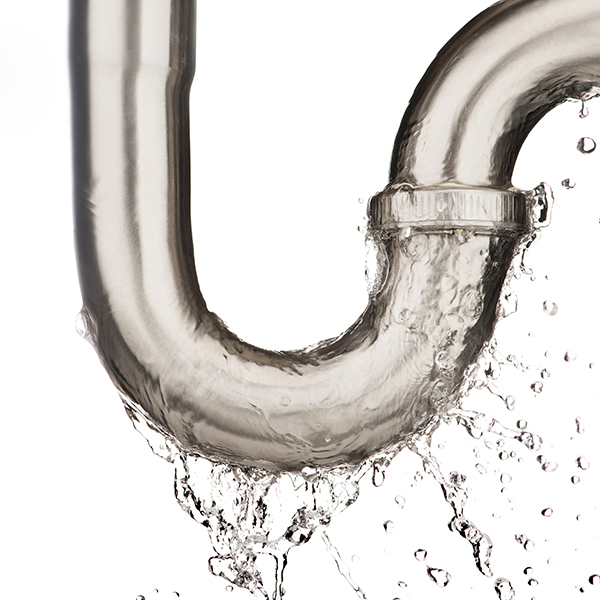
Beat the Freeze: How to Prevent Burst Pipes…And What to Do If It’s Already Happened
Frozen and burst pipes in homes are more common than you might think. During the winter months, it’s important to watch the temperature and take preventative measures to make sure you don’t end up with frozen or even burst water pipes and potentially major water damage. Studies have shown that a good temperature threshold to watch for is 20° F—when the outside temperature drops to 20 degrees or lower, pipes in exterior walls and uninsulated pipes can get cold enough that the water inside will freeze.
Tips to Prevent Frozen Pipes
- Keep garage doors closed. This is especially important if there are water supply lines in the garage.
- Set the temperature no lower than 55° F. Whether you lower the temperature at night to save on heating bills or are headed out of town, keeping the heat above 55 degrees will help keep your water pipes at a level above freezing.
- Open cabinet doors in the kitchen and bathrooms. This will allow warmer air to circulate around the plumbing, especially if your sinks are against the exterior wall.
- Set water to slowly drip from faucets. Running water through pipes that run along exterior walls, even at a trickle, keeps water moving and helps prevent the pipes from freezing.
- Insulate pipes. Add insulation around pipes that run through unheated, interior areas of your home, such as attics, basements, crawl spaces, and garages.
Tips to Thaw Frozen Pipes
If you turn on a faucet and only a trickle comes out, that’s a good sign that you have a frozen pipe. Here are a few things you can do to reverse the problem:
- Turn on the faucet. As you heat the frozen pipe and the ice begins to melt, it’s important that the water is able to flow through. Running water through the pipe, as cold as it may be, will help melt ice in the pipe.
- Apply heat to the pipe. Use a hair dryer, electric heating pad wrapped around the pipe, or a portable space heater to warm the pipe and melt any ice inside. For safety, never use a blowtorch, kerosene or propane heater, charcoal stove, or any device with an open flame. Continue applying heat until the regular water pressure is restored.
- Call a licensed plumber if you are unable to locate the frozen area of pipe or if you are unable to thaw the frozen pipe yourself.
What to Do If a Pipe Bursts
If the water in a pipe freezes and expands enough to crack the walls of a pipe, you’ll find yourself surrounded by a lot of unwanted, gushing water. Here’s what to do:
- Immediately shut off the water supply. This will at least stop more water from pouring into your home and give you time to deal with the damage that’s already been done. You may also want to shut off the electricity.
- Call a water damage restoration professional. We’re here for you and can help you get your home and property back into shape. We’ll work directly with your insurance company.
- Begin removing any standing water. While you wait on help from the experts, begin removing as much water as you can use buckets, towels, a wet/dry vacuum, and space heaters. Mold and mildew can begin to grow within 24 hours, so it’s extremely important to begin removing unwanted water as soon as possible.
- Let the experts do their job. Restoration professionals, like Water Extraction Experts, will not only help you get rid of any remaining water but will be able to help you properly dry floors and walls, applying antimicrobial treatments to reduce the growth of mold and bacteria, carry out an effective repair of the burst pipe, and help with the restoration of any affected appliances or furniture.
We’re here to help!
Water Extraction Experts specialize in water damage restoration, sewage cleanup, mold removal, fire & smoke damage restoration, flood damage cleanup. We have 3 locations to serve you.
EMERGENCY 24/7 WATER DAMAGE
CALL: 970-581-4498 Northern Colorado
CALL: 307-220-5900 Southeastern Wyoming
CALL: 505-250-6500 Albuquerque and Santa Fe, New Mexico Areas
